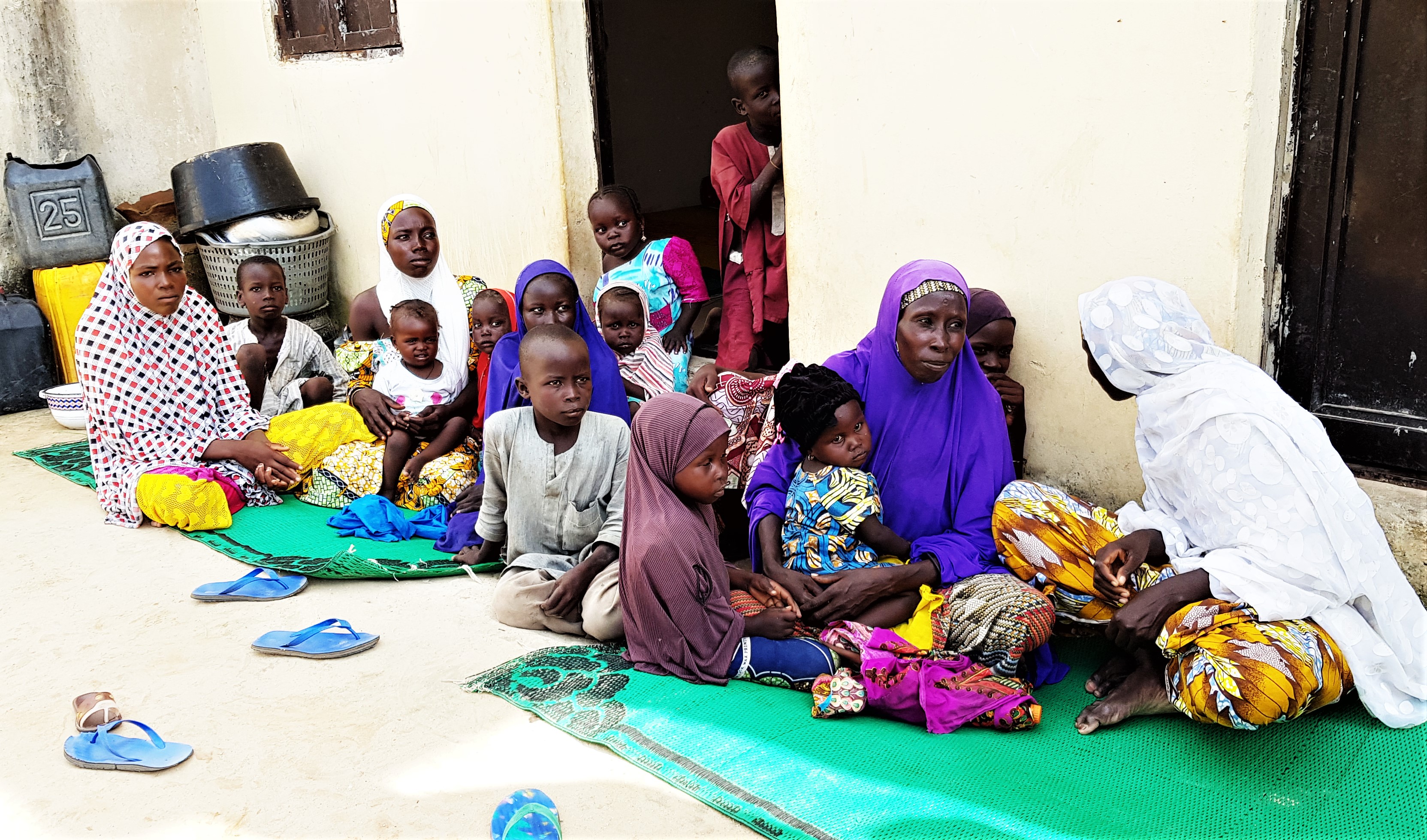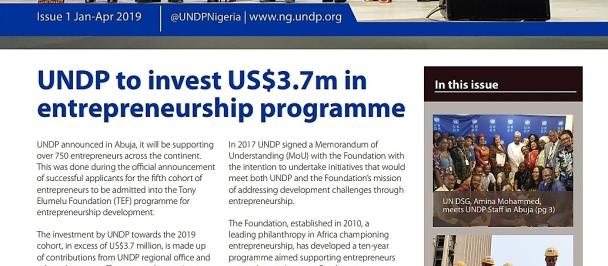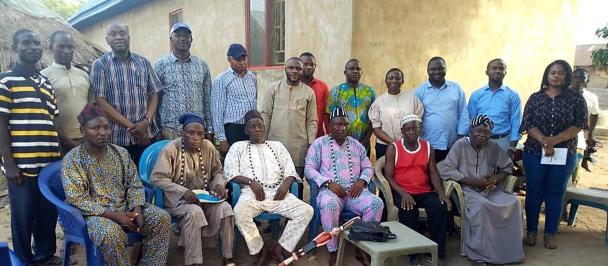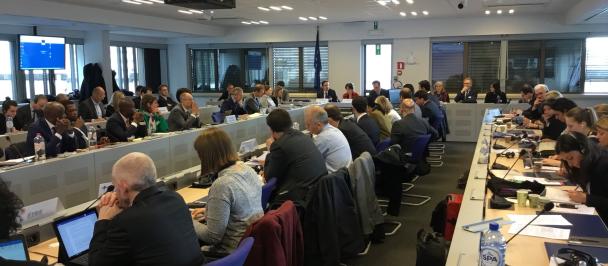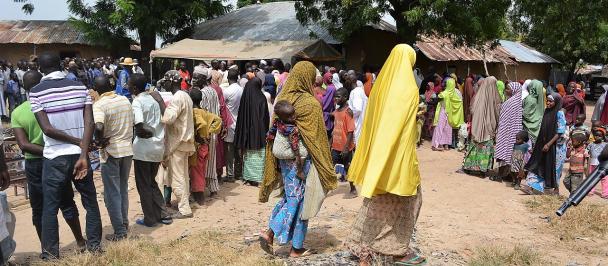With its roots in prolonged development deficits, addressing the crisis in the region will require address the underlying causes.
Achieving human development in North-East Nigeria will require addressing root causes of the crisis - Achim Steiner
November 14, 2018
A formerly displaced family sits outside their home in Ngwom village, Borno State (Photo, UNDP Nigeria/Lucky Musonda)
UNDP launched the national Human Development Report 2018 under the theme achieving human development in North-East Nigeria. Nigeria's North-East region has been ravaged by the decade long military insurgency by Boko Haram. The insurgency has resulted in a crisis of global magnitude - over two million people have been displaced across the region and more than thirty thousand people have died.
It has been estimated that over USD8 billion worth damage has been done to infrastructure across the region with Borno State being the most affected. Maiduguri, the State capital remains the epicentre of the crisis and home to majority of the displaced.
The Human Development Report for Nigeria, launched on 6 October, gives special attention to the region in an attempt to understand both the historical and current factors that have provided a fertile ground for the growth and expansion of radical narratives and recruitment of youths into extremist groups. The Report recommends that the most effective way to deal with any potential humanitarian and development crises is to prevent them from occurring in the first place and/or spreading beyond trigger points.
During the launch of the report in Abuja, UNDP Administrator Achim Steiner stressed that “human development in the region will not be guaranteed if urgent attention is not paid to addressing the fundamental causes of the crisis.” The Administrator pointed out that globally, human development reports have become the vehicle for "countries to reflect on the connections of many different realities and elements that define development as a success or as a failure." The 2018 report establishes a strong relationship between widespread youth unemployment, low levels of development and insurgency. It also highlights the discrepancy in human development between States in the North East which have Human Development Index (HDI) scores below the national average and others in the South like Lagos which scored above the national score.
"We are challenging the way of thinking about development that leave too many people behind, that is not able to generate the kind of aspiration and national pride that accompanied so many African nations at the time of their independence." Achim Steiner added.
The report "focuses on a very timely issue," stated Edward Kallon, UNDP Resident Representative adding that understanding the humanitarian-development and peace nexus was key in developing appropriate strategies for implementing initiatives that will help affected communities. "It comes at a time when the country was grappling with the complex and multidimensional conflict in the North-East," he emphasized.
Minister of Budget and National Planning Sen. Udoma Udo Udoma stated during the official presentation of the report that it "confirms the view that the Boko Haram insurgency is partly as a result of the manipulation, by religious extremists, of some of the socioeconomic and social cultural conditions of the North-East. By addressing the economic and development issues of the North-East, we are also helping to reduce the incidents of terrorism.
Achieving human development in the crisis ravaged region will be an enormous task for both the national and sub-national authorities. It will take a lot of investment in meeting early recovery needs of the affected communities and stabilizing their communities and laying a solid foundation for sustained peace to prevail and development to take place. The report notes that between 2003 and 2014, while the other parts of the country recorded declines in poverty incidences, the North-East did not – instead, it registered an increase from 45.56% to 47.56%. Additionally, when analyzing deprivation at State level, Yobe State in the North-East has been found to be the most deprived alongside Zamfara in the Northwestern region.
This report recommends prevention as the penultimate weapon and countermeasure against conflict, violence and subsequently, humanitarian and development crisis. It further recommends addressing conclusively, rather than glossing over, the root causes of the crisis that have been identified in the report including, paying attention to the menace of poverty and deprivation and dealing with the governance deficit that the report has highlighted.
The report further emphasized the need for developing and deploying an early warning system for early detection of potential crisis triggers, as well as determining the sign posts and tackling the root causes of these triggers.
Additionally, it is the view of the authors of the report that there is need to strengthen and decentralise the de-radicalization policy. This is especially important drawing on the fact that many youths in the region have been overly-radicalised and could be ready to take up arms in the defence of causes which the report finds to be essentially, political rather than religious and, in fact, most intrinsically linked to their economic deprivation.
UNDP, working with the government of Nigeria, products National Development Reports every two years. The 2016 report focused on human security and its link to human development.

 Locations
Locations
